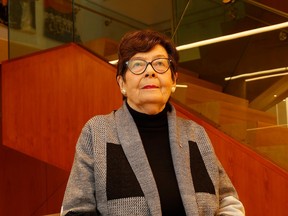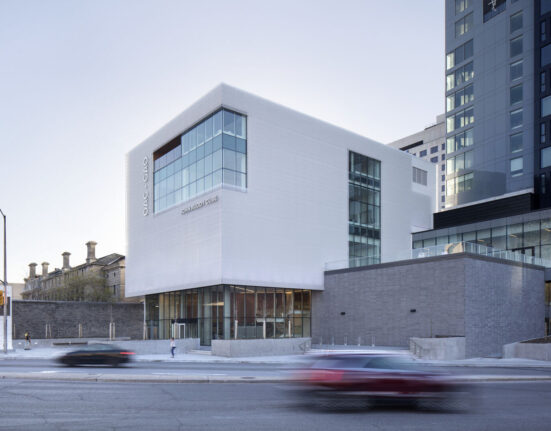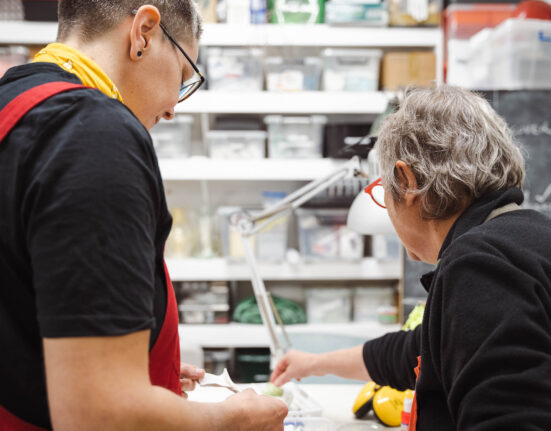Throughout Washington, D.C., and beyond, Sam Gilliam was celebrated as a pioneering African-American artist, illuminated not only through his groundbreaking work but also through stories from various people about his impact.
Gilliam, who was born in Tupelo, Mississippi in 1933 and died in the nation’s capital in 2022, was affectionately called the “dean” of the District’s arts community.
Narratives shared by friends, art collectors, and District residents offer a rich and multifaceted view of Gilliam’s influence that extends far beyond his contributions in his artwork.
Attorney J. Larry Fraizer recounted his relationship with Gilliam, beginning with an art exhibit encounter.
“I met Sam at an art exhibit, and then he invited me to come to his studio,” Fraizer said. This meeting blossomed into a friendship, marked by art purchases and collaborative projects, revealing Gilliam’s generosity and his stature in the D.C. art scene.
Fraizer’s story underscored Gilliam’s approachability and his commitment to nurturing the community, whether through advising on art acquisitions or engaging in initiatives to support local artists. His anecdotes revealed a side of Gilliam that went beyond the artist to showcase his generosity and deep engagement with the D.C. art scene.
Whether advising on art acquisitions or collaborating on community projects, Gilliam’s dedication to the local art community was evident. His mentorship and advice to emerging artists underscored his role as a supportive and accessible figure in the art world.
Bennie Johnson, former Smithsonian’s Anacostia Community Museum board chair, reflected on Gilliam’s enduring legacy.
“Sam was always innovating the work, always pushing forward, inviting, challenging, and bringing people along to push those new ideas,” Johnson noted.
Highlighting Gilliam’s significant breakthroughs in post-war American art, Johnson emphasized Gilliam’s innovative spirit and his contributions to the community through mentorship and support, often carried out quietly and without seeking attention.
Neighbor Barry Caldwell shared a more personal and unexpected connection to Gilliam’s work. “We won it at a School for Friends auction… We didn’t frankly know what we were doing, but we liked it,” Caldwell explained, detailing how he and his wife unwittingly acquired a piece of Gilliam’s art.
Caldwell’s story evolved from an accidental art acquisition to a deeper realization of Gilliam’s presence in his own neighborhood, illustrating how the artist’s influence permeated even the most personal spaces of District residents’ lives.
Caldwell’s subsequent discovery of living in close proximity to both Gilliam in Crestwood, and the realization that he was surrounded by the artist’s museum-quality works in his own neighborhood, underscored a profound, albeit unintended, personal connection to the artist. This realization brought a deeper appreciation for the piece Caldwell had acquired, embedding Gilliam’s legacy not just in the grandeur of museum halls but in the intimate spaces of community and home.
Gilliam emerged not just as a figure of artistic innovation but as a beacon of mentorship, generosity, and unexpected connections, whose impact was felt in both grand and intimate ways across the District.
Art lovers and close friends alike, agree acknowledging Gilliam involves recognizing his artistic genius and the profound, sometimes unforeseen, ways he continues to touch the lives of those within and beyond the art community.
His legacy, as captured through narratives from people such as Fraizer, Johnson and Caldwell, is a testament to the enduring influence of an artist who lived passionately for his art and the community he loved.
Through these stories, Gilliam’s spirit endures, inspiring a dialogue between art and everyday life, and is a reminder of the profound impact art can have on the world.







